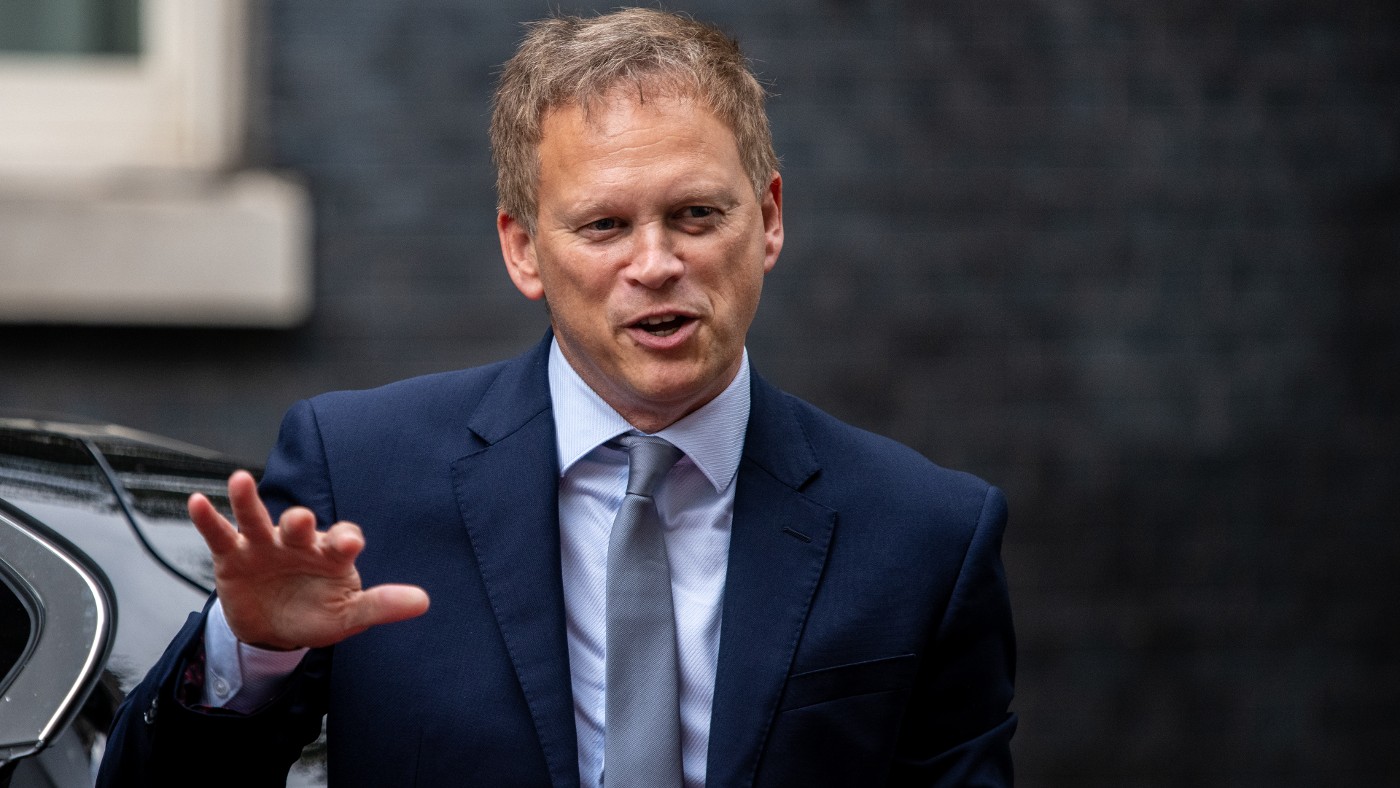The mystery of the sanction-busting plane that flew from Inverness to Moscow
Jet left Scottish airport after flights were banned between UK and Russia

A free daily email with the biggest news stories of the day – and the best features from TheWeek.com
You are now subscribed
Your newsletter sign-up was successful
A flight from Inverness to Moscow, which should have been prohibited by sanctions on Russia, was given the go-ahead by the government, the Scottish National Party has claimed.
The Estonian-registered private jet, operated by Panaviatic, took off on 26 February, two days after President Vladimir Putin ordered the Russian invasion of Ukraine. A Notice to Air Missions (NOTAMs) regulation, banning flights between the UK and Russia, was issued the day before the flight, which carried three people and cargo.
Initially, the Department for Transport blamed Inverness airport for the breach of the regulation, accusing it of disobeying the rule banning flights between the UK and Russia.
The Week
Escape your echo chamber. Get the facts behind the news, plus analysis from multiple perspectives.

Sign up for The Week's Free Newsletters
From our morning news briefing to a weekly Good News Newsletter, get the best of The Week delivered directly to your inbox.
From our morning news briefing to a weekly Good News Newsletter, get the best of The Week delivered directly to your inbox.
However, a memo seen by the Press and Journal newspaper suggested that the UK government approved the flight, not the Highland aviation authorities. A transcript of national air traffic controls obtained by the paper suggested that Inverness airport crews were told there was “no reason to intervene” and block the flight.
But the SNP’s Westminster leader Ian Blackford and UK Transport Secretary Grant Shapps clashed over the issue.
Blackford claimed Highlands and Islands Airports (HIAL) was informed of the regulations 24 hours after they came into effect, and after the flight had departed. He called on Shapps to “tighten the restrictions” so there are not “loopholes that allow flights with a final destination of Moscow”.
However, Shapps hit back on Twitter, disputing the claim that HIAL had not been informed of the sanctions. “It is always the responsibility of Aviation to check NOTAMs before flight,” he wrote.
A free daily email with the biggest news stories of the day – and the best features from TheWeek.com
The story gained wider attention this week when Richard Thomson of the SNP quizzed the prime minister about the flight at yesterday’s PMQs.
He asked Boris Johnson to “commit to informing the House at the earliest opportunity who was travelling on that flight” and to explain “why, despite being informed in advance of the flight, was no attempt made by the UK Government to keep the plane on the ground”.
Johnson replied that he did not know the answer but said “as soon as we can get some information about that, I will make sure that the House is properly informed”.
Previously, Scottish transport secretary Michael Matheson confirmed an order had been issued but said there was a “delay” in information being provided by the Civil Aviation Authority to airport operators.
Therefore, he argued, the flight had been given clearance by air traffic control service as “complying with the sanctions regime in place at that particular point”.
He continued: “So the proper procedures were followed at that particular point but clearly there are some areas where there is a lack of clarity around some aspects of the sanctions regime.”
The Press and Journal noted that a spokesman for Inverness airport has made a similar claim, saying the private jet departed prior to a notification from the Civil Aviation Authority being received at 7.15pm that day.
-
 6 of the world’s most accessible destinations
6 of the world’s most accessible destinationsThe Week Recommends Experience all of Berlin, Singapore and Sydney
-
 How the FCC’s ‘equal time’ rule works
How the FCC’s ‘equal time’ rule worksIn the Spotlight The law is at the heart of the Colbert-CBS conflict
-
 What is the endgame in the DHS shutdown?
What is the endgame in the DHS shutdown?Today’s Big Question Democrats want to rein in ICE’s immigration crackdown
-
 What would a UK deployment to Ukraine look like?
What would a UK deployment to Ukraine look like?Today's Big Question Security agreement commits British and French forces in event of ceasefire
-
 Would Europe defend Greenland from US aggression?
Would Europe defend Greenland from US aggression?Today’s Big Question ‘Mildness’ of EU pushback against Trump provocation ‘illustrates the bind Europe finds itself in’
-
 Is conscription the answer to Europe’s security woes?
Is conscription the answer to Europe’s security woes?Today's Big Question How best to boost troop numbers to deal with Russian threat is ‘prompting fierce and soul-searching debates’
-
 Trump peace deal: an offer Zelenskyy can’t refuse?
Trump peace deal: an offer Zelenskyy can’t refuse?Today’s Big Question ‘Unpalatable’ US plan may strengthen embattled Ukrainian president at home
-
 The Baltic ‘bog belt’ plan to protect Europe from Russia
The Baltic ‘bog belt’ plan to protect Europe from RussiaUnder the Radar Reviving lost wetland on Nato’s eastern flank would fuse ‘two European priorities that increasingly compete for attention and funding: defence and climate’
-
 How should Nato respond to Putin’s incursions?
How should Nato respond to Putin’s incursions?Today’s big question Russia has breached Nato airspace regularly this month, and nations are primed to respond
-
 What will bring Vladimir Putin to the negotiating table?
What will bring Vladimir Putin to the negotiating table?Today’s Big Question With diplomatic efforts stalling, the US and EU turn again to sanctions as Russian drone strikes on Poland risk dramatically escalating conflict
-
 The mission to demine Ukraine
The mission to demine UkraineThe Explainer An estimated quarter of the nation – an area the size of England – is contaminated with landmines and unexploded shells from the war